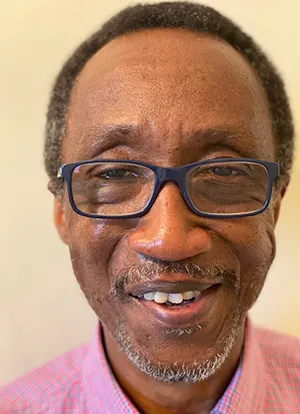Isaac Stanley ’73 Tackles Youth Housing Insecurity Amid Pandemic

Stay at home. Shelter in place. These directives have guided Americans all spring as the country has navigated the coronavirus pandemic.
But what if there’s no home in which to shelter?
Such is the case for tens of thousands of youths facing homelessness across the nation. Even during less chaotic times, these teens and young adults are in crisis, couch-surfing and bouncing from place to place in search of a stable home.
“It really isn’t the stereotypical case of someone actually, physically living on the streets,” says Isaac Stanley ’73, who works with an organization fighting housing insecurity among young people in Chicago. “But it’s usually the case where there’s a lot of conflict in the family, and a person may not know exactly where they’re going to sleep at night, where their next meal is going to come from.”
Stanley, who graduated with a degree in sociology & anthropology, is board chair of Ignite, a Chicago-based agency that provides support for 14- through 26-year-olds on the brink of homelessness. Formerly known as Teen Living Programs, Ignite takes a holistic approach toward housing, offering transitional and independent living spaces, health care and wellness treatment, and opportunities for education and employment, setting young people up for success.
“It’s an agency that doesn’t judge people by their circumstances,” says Stanley, a business analyst who retired from MetLife in 2017; the father of two grown sons is also one-half of a matchbox couple, with Ava Harris Stanley ’72, a cardiologist. “Oftentimes, there is what our staff have characterized as a bigotry of low expectations — that is, you see someone who is in a vulnerable position and you judge them by where they are. Our agency tries to find and ignite that spark so the youth can reach their full potential.”
That mission is what first led Stanley to contribute to the organization roughly a decade ago. And it has continued even as COVID-19 has ravaged the country, with Ignite’s doors staying open to young people in need. Although volunteer efforts had to be halted temporarily, Ignite has remained fully staffed, with overtime and hazard pay instituted to ensure the agency could keep running.
“I’m 100% glad that the youth are where they are, because what is the alternative?” says Stanley, who notes that social distancing was implemented and security increased to keep everyone at Ignite’s facilities safe. “Being out on the street or couch-surfing from one place to another, that would definitely put that entire population at more risk than they are now.”
But the additional costs came just as the agency was forced to cancel its biggest fundraiser of the year, the Ignite and Shine gala. Instead of taking a loss, Stanley and the board got creative — quickly pivoting toward a virtual celebration. “We reached out to all our sponsors of the gala,” says Stanley, “and all but one said to keep the money, do whatever you have to do.”
The gala transitioned into a fundraising campaign, Ignite and Shine Online, which highlighted success stories of the youth and staff while raising awareness of the organization’s financial needs, especially during the health crisis. Over five days, from April 13 to 17, family foundations and other sponsors offered matching donations to drum up monetary support. And an anonymous benefactor donated $100,000 to help with the group’s unforeseen expenses.
As a result, Ignite reached and slightly exceeded its fundraising goal, bringing in $337,000 to help keep youth housed and fed. For Stanley, the experience has driven home the importance of flexibility in the face of adversity.
“The situation is changing day over day: What we think is ‘normal’ yesterday may not be normal today, and certainly next week might be totally different,” he says. “So having an open mind, being creative, being willing to change — I think that’s the key to success.
“But one of the things I’ve learned from this whole experience, and being on the board at Ignite, is the role of philanthropy,” he adds. “Everyone who’s part of the College is very aware that if you have the means to give back, it’s your duty to take care of those who are in need. That’s what drives me at this point: If I have it, it’s best put to use trying to find a need that I can fill and to reach out and do it.”



